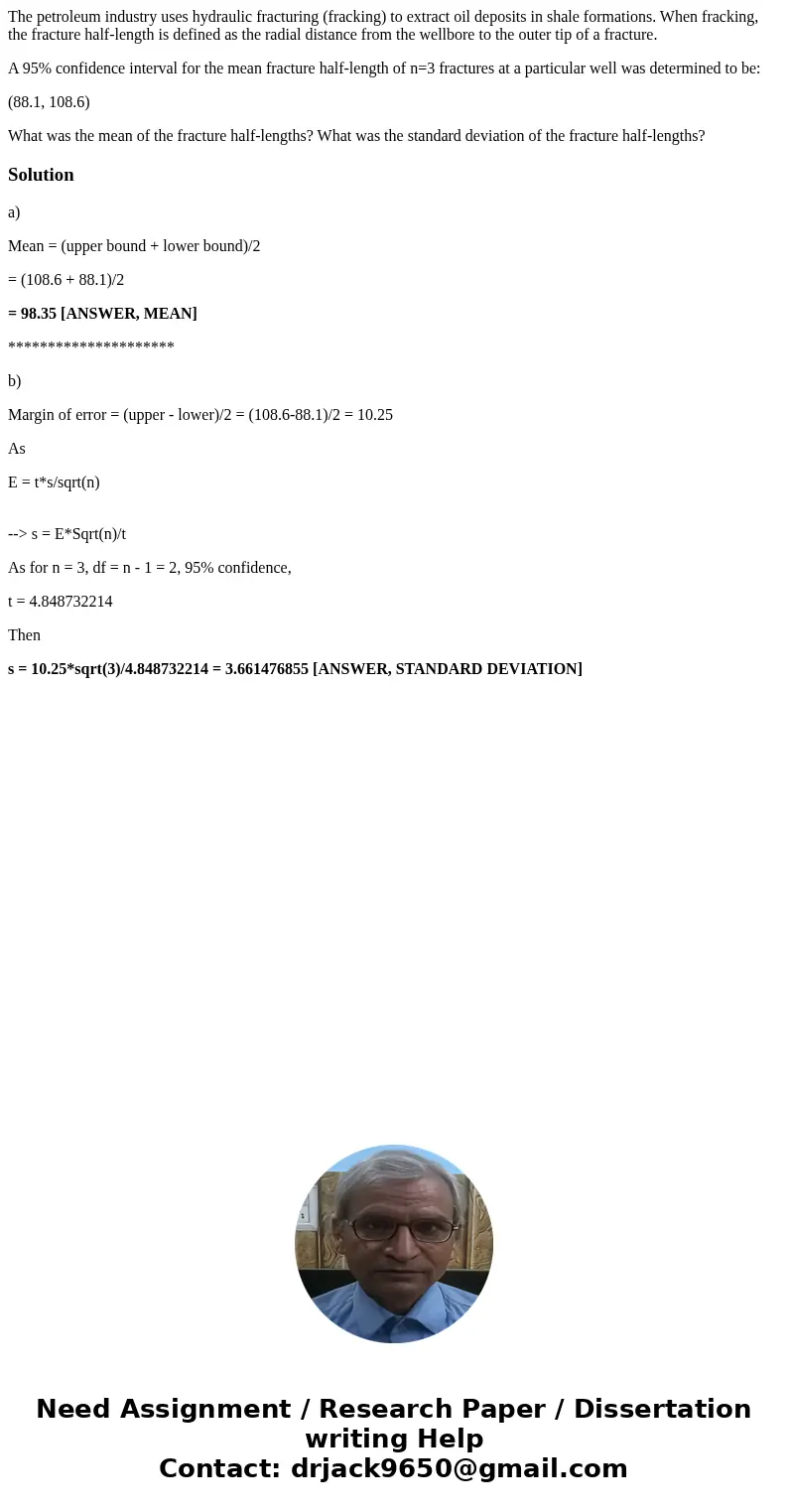The petroleum industry uses hydraulic fracturing fracking to
The petroleum industry uses hydraulic fracturing (fracking) to extract oil deposits in shale formations. When fracking, the fracture half-length is defined as the radial distance from the wellbore to the outer tip of a fracture.
A 95% confidence interval for the mean fracture half-length of n=3 fractures at a particular well was determined to be:
(88.1, 108.6)
What was the mean of the fracture half-lengths? What was the standard deviation of the fracture half-lengths?
Solution
a)
Mean = (upper bound + lower bound)/2
= (108.6 + 88.1)/2
= 98.35 [ANSWER, MEAN]
*********************
b)
Margin of error = (upper - lower)/2 = (108.6-88.1)/2 = 10.25
As
E = t*s/sqrt(n)
--> s = E*Sqrt(n)/t
As for n = 3, df = n - 1 = 2, 95% confidence,
t = 4.848732214
Then
s = 10.25*sqrt(3)/4.848732214 = 3.661476855 [ANSWER, STANDARD DEVIATION]

 Homework Sourse
Homework Sourse